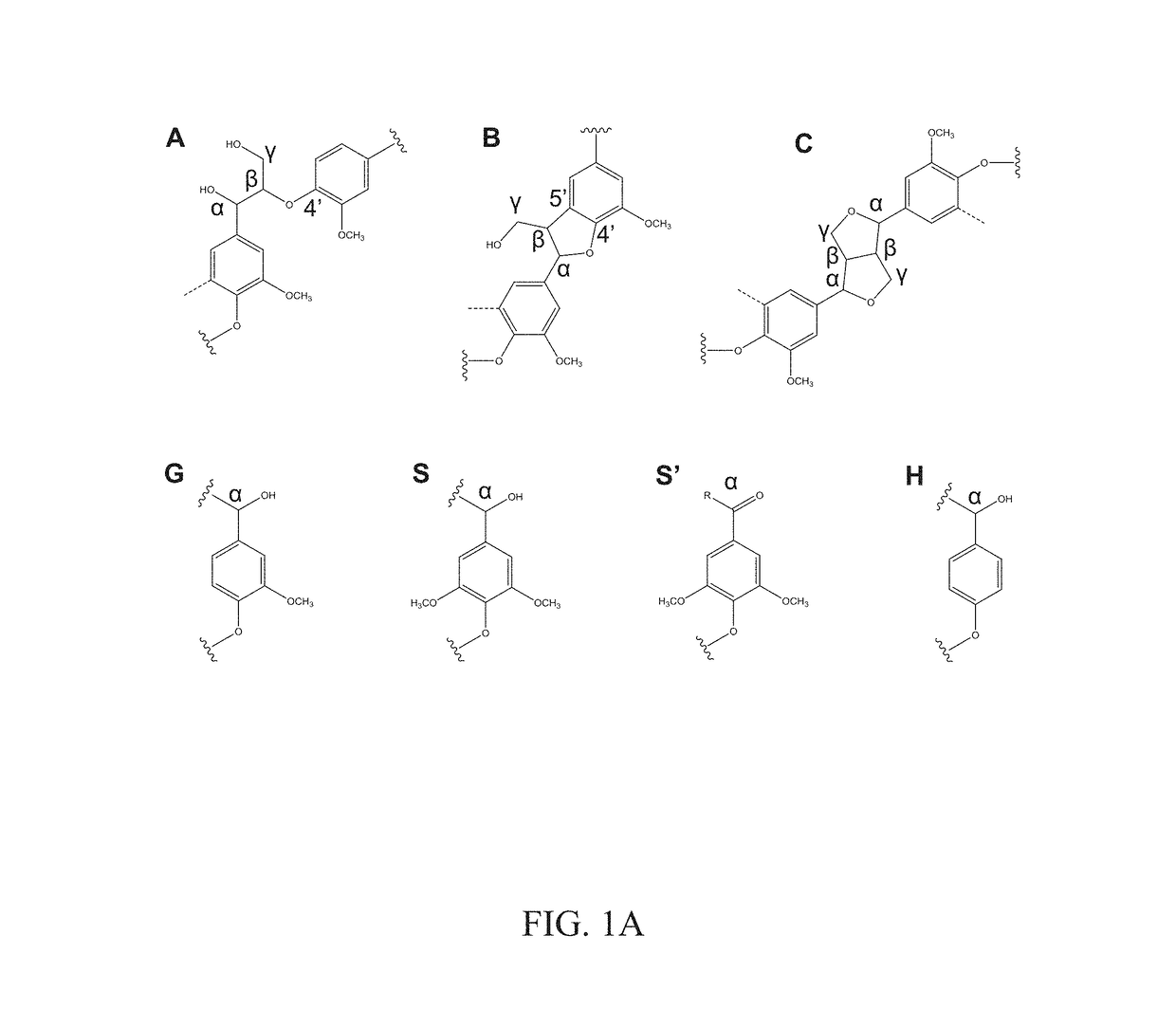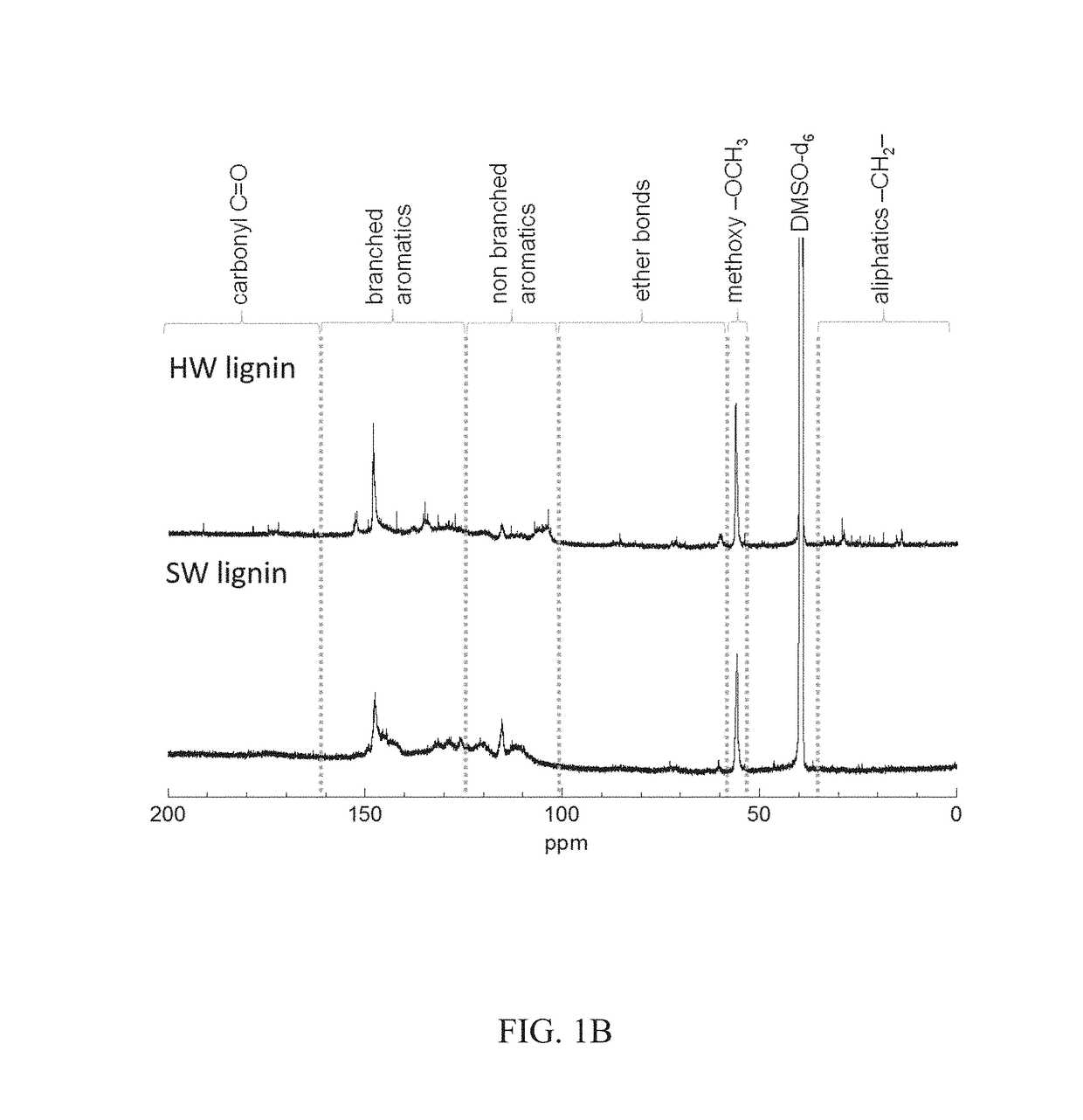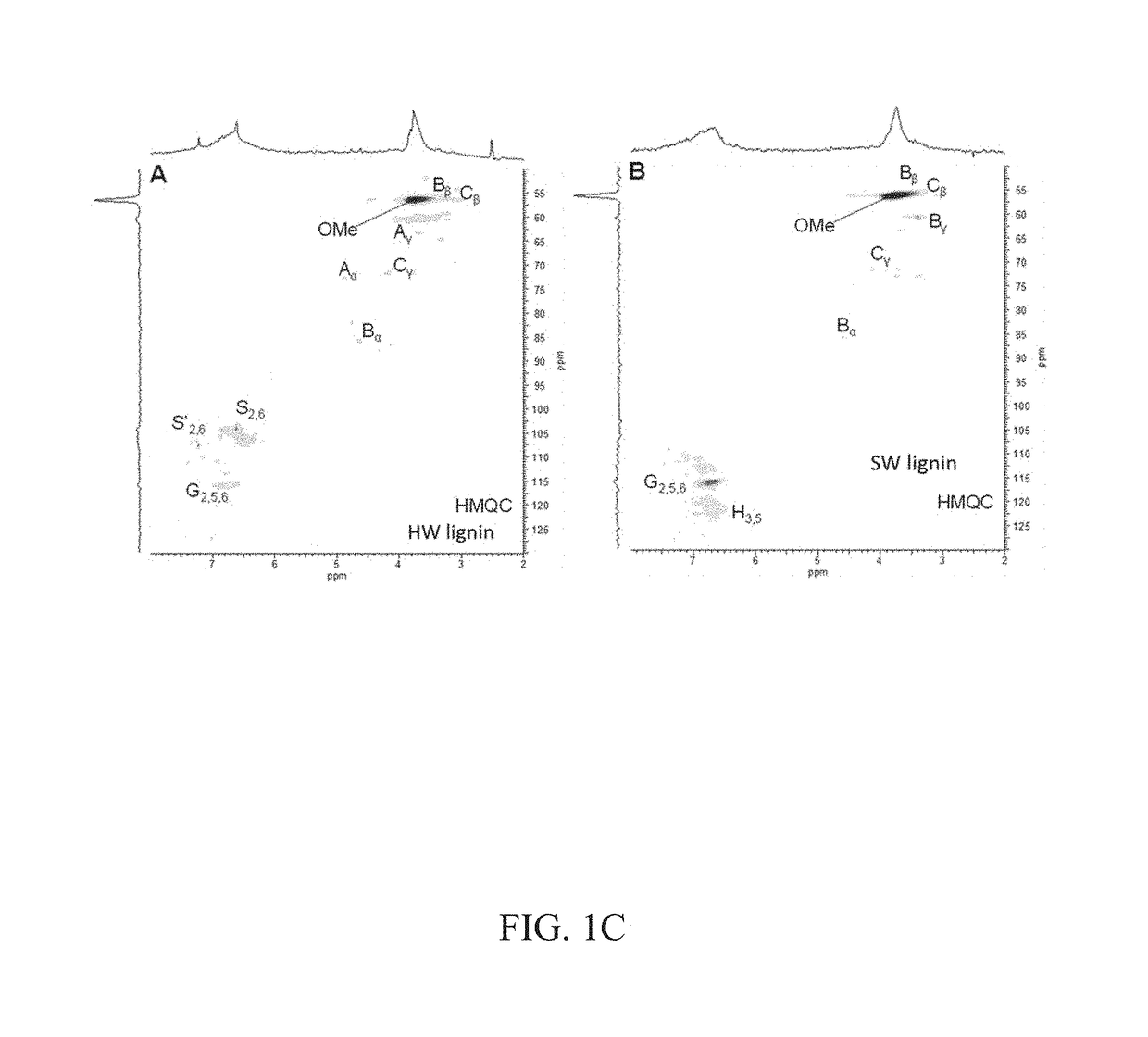Shape memory polymer blend materials
- Summary
- Abstract
- Description
- Claims
- Application Information
AI Technical Summary
Benefits of technology
Problems solved by technology
Method used
Image
Examples
examples
Synthesis and Analysis of an Acrylonitrile-Butadiene Polymer Blend
[0064]Overview
[0065]FIG. 1A depicts representative chemical structures of lignins. Lignin is an important component in plants by contributing to the stiffness of plant cell walls, accounting for ca. 15% to 40% dry weight (depending on the plant sources) and is the second most abundant (after cellulose) in plant biomass. It is often isolated as a byproduct from the pulping industry or biorefineries and used as a cheap feedstock for thermal energy recovery through combustion. The representative chemical structures of lignins used in these experiments were determined by 13C nuclear magnetic resonance (NMR) and two-dimensional (2D) 1H-13C heteronuclear multiple quantum coherence (HMQC) NMR spectroscopy. The measured 13C NMR spectra and 2D-NMR HMQC spectroscopy data are presented in FIGS. 1B and 1C. HW lignin contained significant β-O-4′ linkages (substructure A, shown in FIG. 1A), while this linkage was not detected in SW...
PUM
| Property | Measurement | Unit |
|---|---|---|
| Temperature | aaaaa | aaaaa |
| Fraction | aaaaa | aaaaa |
| Fraction | aaaaa | aaaaa |
Abstract
Description
Claims
Application Information
 Login to View More
Login to View More - R&D
- Intellectual Property
- Life Sciences
- Materials
- Tech Scout
- Unparalleled Data Quality
- Higher Quality Content
- 60% Fewer Hallucinations
Browse by: Latest US Patents, China's latest patents, Technical Efficacy Thesaurus, Application Domain, Technology Topic, Popular Technical Reports.
© 2025 PatSnap. All rights reserved.Legal|Privacy policy|Modern Slavery Act Transparency Statement|Sitemap|About US| Contact US: help@patsnap.com



